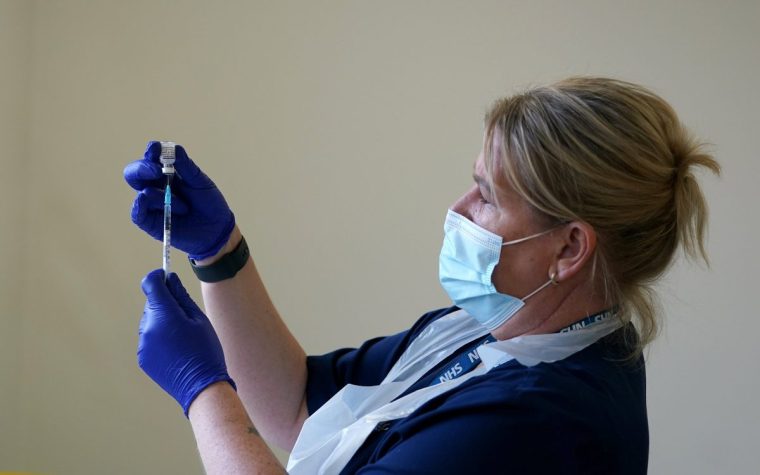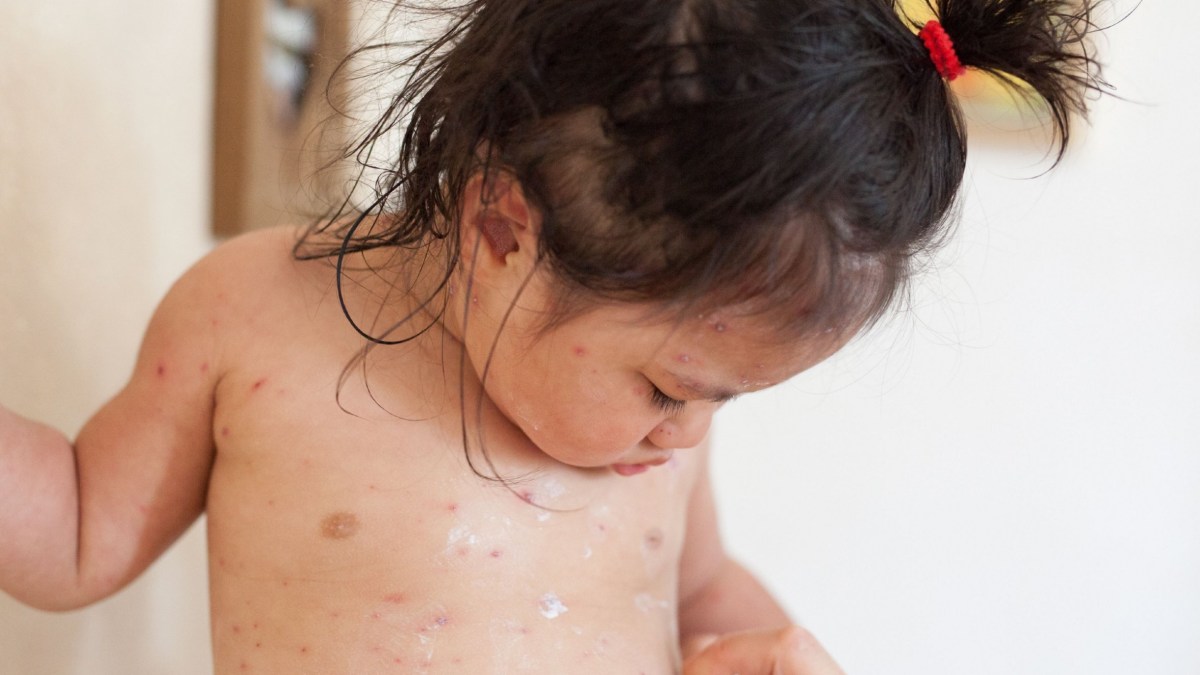The jab will be offered at GP practices from January 2026 and is expected to offer protection to around 500,000 children every year
A vaccine for chickenpox will be rolled out on the NHS in England from January 2026, officials have announced.
The jab, which currently costs around £150 at private clinics and pharmacies, will form part of a new combined immunisation on the childhood vaccination programme.
Ministers hope it will not only protect some youngsters from severe complications from the virus, but also prevent parents taking time off work to look after their children when they become infected.
New FeatureIn ShortQuick Stories. Same trusted journalism.
Chickenpox is a common childhood illness and is usually mild. The main symptom is an itchy, spotty rash over the body, but before this appears, children may have a high temperature, a loss of appetite, and may feel generally unwell.
Chickenpox symptoms usually improve within one to two weeks, although some children can develop complications such as bacterial infections like group A strep. In rare cases, the virus can cause swelling of the brain, serious lung inflammation and stroke, sometimes leading to death.
A new MMRV vaccine
The chickenpox vaccine – also known as the varicella jab – will form part of a new combined MMRV (measles, mumps, rubella and varicella) vaccine. It will be offered at GP practices from January 2026, and is expected to offer protection to around 500,000 children every year.
The MMRV will eventually replace the MMR, which is offered to babies at 12 months and 18 months. It is the first time protection against another disease has been added to the routine childhood vaccination programme since 2015.
 None of the main childhood vaccines in England reached the 95 per cent uptake target in 2024-25, figures show (Photo: Martin Rickett/PA Wire)
None of the main childhood vaccines in England reached the 95 per cent uptake target in 2024-25, figures show (Photo: Martin Rickett/PA Wire)
Dr Gayatri Amirthalingam, deputy director of immunisation at the UK Health Security Agency (UKHSA), said the move “could be a life saver”. Chicken pox causes around 20 deaths in the UK each year.
Dr Amirthalingam said: “Most parents probably consider chickenpox to be a common and mild illness, but for some babies, young children and even adults, chickenpox can be very serious, leading to hospital admission and tragically, while rare, it can be fatal.”
£24m in lost income and productivity
The announcement ties in with the Government’s wider ambition to raise “the healthiest generation of children ever” as part of its Plan for Change. Ministers aim to boost the nation’s health and ensure the future sustainability of the NHS as it shifts the focus of healthcare from sickness to prevention.
Chickenpox causes an estimated £24m in lost income and productivity every year in the UK, with parents forced to take time off work to care for their children, according to the Department of Health. The rollout of the vaccine is also expected to save the NHS £15m a year in costs for treating the illness.
Health minister Stephen Kinnock said: “We’re giving parents the power to protect their children from chickenpox and its serious complications, while keeping them in nursery or the classroom where they belong and preventing parents from scrambling for childcare or having to miss work.”
The Joint Committee on Vaccination and Immunisation (JCVI), which advises UK health departments, recommended the introduction of the jab on the NHS in November 2023. The vaccine is already part of the routine vaccine schedules in a number of countries, including Germany, Australia, Canada, and the US.
Helen Bedford, Professor of Children’s Health at UCL, said: “Research has shown that UK parents will welcome the vaccine and can be reassured that it is highly effective and has a good safety record having been used in the USA for 30 years.”
The announcement comes as new data revealed none of the main childhood vaccines in England reached the 95 per cent uptake target in 2024-25.
Some 91.9 per cent of five-year-olds had received one dose of the MMR vaccine, unchanged from 2023-24 and the lowest level since 2010-11, according to the UKHSA.
Just 83.7 per cent of five-year-olds had received both MMR doses, down year on year from 83.9 per cent and the lowest level since 2009-10. Uptake of the first MMR dose at 24 months stood at 88.9 per cent in 2024-25 – unchanged on the previous year, but again the lowest figure since 2009-10.
Good news but will parents pay attention?
Most parents will know the frustration of having to give up days of work to look after children brought down by chickenpox. The common childhood illness is behind £24m in lost productivity and income plus an additional £15m in treatment costs.
The Government has promised to “raise the healthiest generation of children ever” as part of its Plan for Change so it makes sense to add the chickenpox to the routine immunisation programme from January onwards.
The chickenpox vaccine – also known as the varicella jab – will form part of a new combined MMRV (measles, mumps, rubella and varicella) vaccine and replace the MMR vaccine. The new MMRV jab is expected to offer protection to around 500,000 children every year.
Sadly though, many parents will fail to get it, as they do with other routine vaccines that are safe and provide immunisation against potentially fatal illness.
Figures published on Thursday revealed that just 83.7 per cent of five-year-olds had received both MMR doses, down year on year from 83.9 per cent and the lowest level since 2009-10. The Government’s target, in line with the World Health Organisation, is 95 per cent.
A combination of post-pandemic vaccine fatigure and the spread of misinformation and conspiracy theories online has served to keep childhood vaccination rates stubbornly below target and does not appear to be changing anytime soon. More effort will be needed to ensure children do not miss out on a safe and effective vaccine that has been used for many years in Europe and North America.
